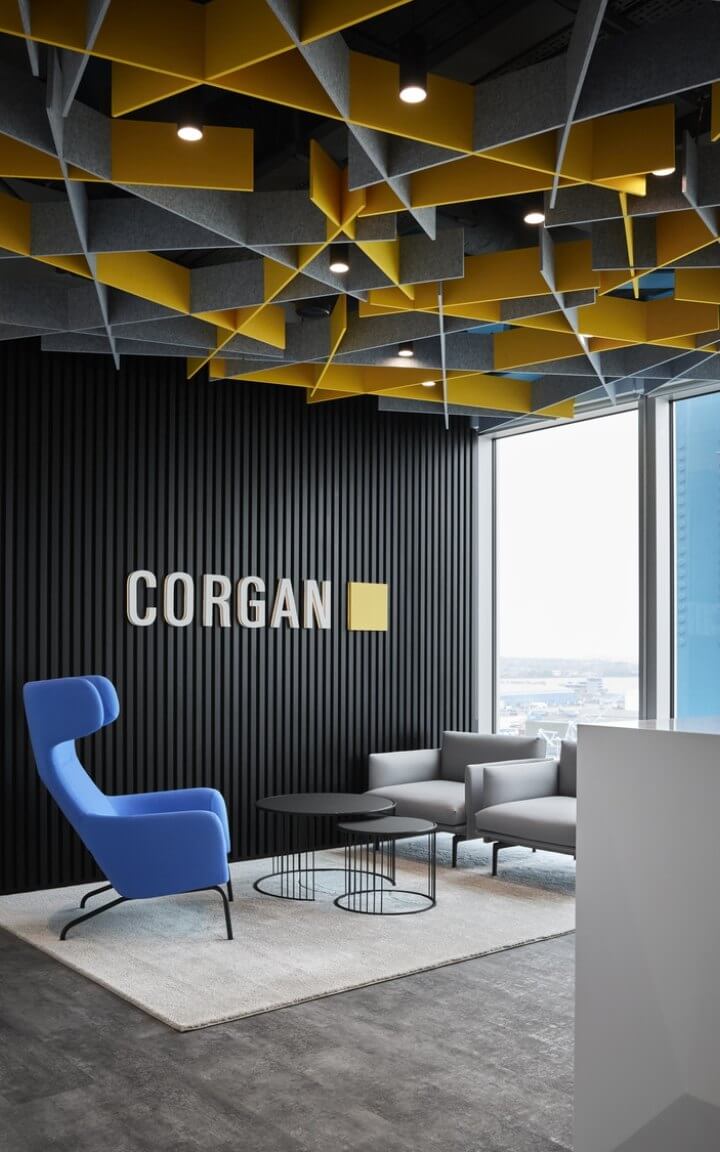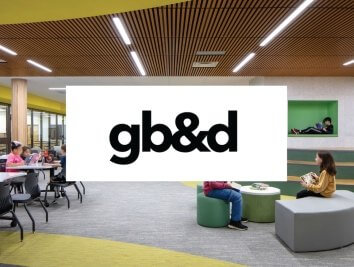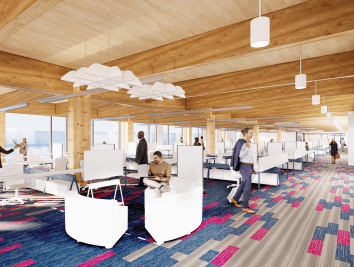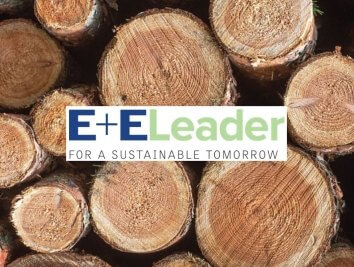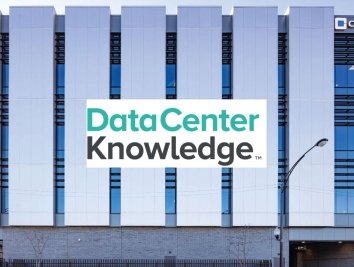Generation Alpha: Understanding the Next Generation of Learners

Like clockwork, a new generation of learners arrives in our classrooms every 15 to 20 years, with their expectations, skills, behaviors, and challenges shaped by their time's unique circumstances. With them comes a new perspective and a renewed focus on adapting education to meet their needs and prepare them for the future. Generation Alpha is the newest generation, and they’re already here, but are their learning spaces ready for them?
Generation Alpha, born 2010 to 2025, is the first generation born entirely within the 21st century 1 and they will also be the first generation to live decidedly into the 22nd 25. They were born into a rapidly changing world and their lives thus far have been defined by the ubiquity of increasingly mobile, responsive, and personalized technology. Also known as Generation Glass, the iGeneration, or the Global Generation, Alphas are technologically literate, digitally connected, and skilled creators 25. There has never been more information readily available and easily accessible for knowledge-seekers to engage with independently. Therefore, classroom experiences need to shift their focus from content mastery to meaningful and relevant, skills-based experiences that allow Alphas to innovate and share what they know 9, 25. This next-generation approach frames learning as an active, student-led, hands-on process with seamlessly integrated tools and technologies that will necessitate a change in the design of classroom environments.

Understanding the Next Generation of Learners
To design optimal learning spaces for Generation Alpha, we first need to understand their expectations, needs, and the challenges they face. By 2025, there will be nearly 2 billion Alpha’s living and learning across the globe 1. While the oldest members of Generation Alpha are still in elementary school and many have yet to be born, it is possible to make some predictions about this emerging generation through demographic analysis. Alphas are often the children of Millennials and the siblings of Generation Z. They are expected to be the most racially and ethnically diverse generation yet, as well as the most formally educated, digitally literate, longest-living, and globally connected 1, 13.
Alphas have experienced greater immersion in formal education from an earlier age and they are also expected to continue their education later into their lives, with the majority of Alphas expected to obtain a university degree or continue formal education of some kind 13. These two trends will make Generation Alpha the most formally educated generation yet. However, it will also change Alphas’ developmental timeline, their expectations for their education, and the way they will function in the workforce 13.
DEVELOPMENT
Alphas have been connected to and engaged with mobile technologies since birth. Their generation began in the same year the iPad hit the consumer market and the word “app” was the American Dialect Society’s word of the year 1, 13. The omnipresence of highly responsive technology and rapid access to anything and everything online has positive and negative implications for Generation Alpha, including increased screen time, shortened attention spans, exceptional digital literacy, and deficits in forming in-person social skills 13.
For this emerging generation, early childhood has been defined by COVID-19 1. While the full impact of the pandemic on their lives is not yet known, the disruption to their education with an abrupt shift to online learning, increased screen time, the stress of a global crisis, and limited opportunities for socialization have created significant challenges for young peoples’ mental and emotional health. The pandemic has exacerbated existing inequities and brought our society’s overdependence on schools to address deeper social issues to light. As Alphas grow, they will need additional support to ensure their social and emotional needs are met. With even greater awareness of the importance of supporting wellness across all facets of life, Alphas will expect to receive the holistic support they need to thrive in their education and their future workplace 9, 13.

Biologically, there has been a trend toward the earlier onset of physical maturity over the last century, effectively beginning the period of adolescence sooner in children’s development 3, 13. With ever-increasing access to technology, limitless information, more significant consumer influence, and greater exposure to external influences than any generation has experienced before, the youth of today are growing up faster at a younger age than previously seen in a social capacity 13. As a result, Alphas will potentially receive support from their parents into their mid to late twenties before they begin their careers 13. This trend of prolonged adolescence has significant implications for Alphas’ physical, social, and psychological health, as well as their education.
Adolescence is characterized by dramatic changes in brain development, an increased desire for independence, a focus on social connection, and greater risk-taking behavior 5, 19, 23. This stage of development is well-known for its challenges, but research has shown the importance of supporting and promoting positive perceptions of adolescents and their capabilities for desirable educational and social outcomes 19. For example, researchers have found an overlap between risk-taking behavior and prosocial behavior, suggesting that these two characteristics develop together, making adolescents uniquely poised to take risks to help others 19.
Before the pandemic, Generation Alpha was predicted to continue with Generation Z’s engagement in social activism, but now this trend is only likely to intensify 1. As Alphas grow up in a society disrupted by COVID-19, their increasing awareness of global challenges like sustainability, health, and social justice could further intensify this age group’s interest in reimagining a greener, healthier world 1. Alphas will demand greater alignment between the way they engage with the world around them and their opportunities to learn and grow.
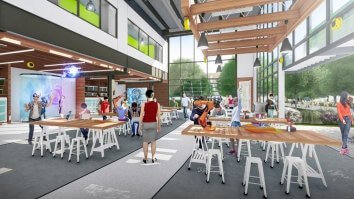
EDUCATIONAL NEEDS
Learning is about innovating, building skills, and engaging with the real world for the Alpha Generation. They prioritize learning experiences that are meaningful and relevant, and they will increasingly be looking for symmetry between their worlds inside and outside of the classroom 9, 25. The digital tools and technologies surrounding them are a natural extension of their capacity to gather information, prototype, create value, and interact within a global network 13, 25. Immersive, adaptive, and responsive technologies will need to be seamlessly integrated into the learning environment to allow Alphas the opportunities they need to explore their interests, capture their thinking process, demonstrate their knowledge, and share what they know with their peers and the world 9, 13, 25. Taking advantage of the full spectrum of learning opportunities afforded by Extended Reality technologies will excite this generation of learners and provide embodied technology experiences that will be more impactful 15.
Considering the prevalence of technology and its overwhelming presence in all aspects of Generation Alpha’s lives, creating balance through grounded experiences and person-to-person interaction will be extremely important for helping Alphas to cultivate the soft skills and social skills they need to excel 25. Learning to regulate their behavior, interacting with others, setting goals, and developing habits of mind are all critical competencies developed in the classroom 25.
As this generation of students progresses through their education, the majority of Alphas are anticipated to pursue some form of higher education and they will continue to prioritize skill-building over content mastery 9. The World Economic Forum estimates that 65% of students in elementary school today will be working in jobs that don’t exist yet 24. This means higher education institutions will need to evolve and adapt as new careers and industries emerge. Rather than the traditional focus on all-purpose degrees, Alphas will be looking for real-world learning and meaningful experiences and connections through industry partnerships 9. As Alphas see their careers shift and evolve, access to continued education and skills training will become increasingly essential to support lifelong learning.
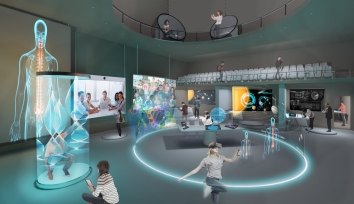
FUTURE WORKFORCE
Following the current trend toward increased job mobility in an ever-changing world with rapid technological advancement, Alphas are anticipated to have many different jobs across multiple distinct careers 13. They will be lifelong learners, continuing to adapt, grow, and evolve their skillset throughout their working life, which will extend into their sixties and seventies 13. Competencies and character qualities will be most important for Alphas to stay relevant and agile amidst increasing automation in their future careers in emerging fields like cybersecurity, nanotechnology, autonomous transport, blockchain, and virtual reality 13. In a complex world fraught with global challenges, Alpha’s natural propensity for innovation will guide them towards careers that align with their values and provide opportunities to enact positive change 9.
REFERENCES
- The Annie E. Casey Foundation. (2020, November 4). What is generation alpha? The Annie E. Casey Foundation. Retrieved October 7, 2021, from https://www.aecf.org/blog/what-is-generation-alpha.
- Barrett, P., Davies, F., Zhang, Y., & Barrett, L. (2015). The impact of classroom design on pupils' learning: Final results of a holistic, multi-level analysis. Building and Environment, 89, 118-133.
- Bellis, M. A., Downing, J., & Ashton, J. R. (2006). Adults at 12? Trends in puberty and their public health consequences. Journal of epidemiology and community health, 60(11), 910–911. https://doi.org/10.1136/jech.2006.049379
- Berman, M. G., Jonides, J., & Kaplan, S. (2008). The cognitive benefits of interacting with nature. Psychological science, 19(12), 1207-1212.
- Carolan, B. V., Weiss, C. C., & Matthews, J. S. (2015). Which middle school model works best? Evidence from the early childhood longitudinal study. Youth & Society, 47(5), 591-614.
- (2021, April 9). The UDL guidelines. CAST. Retrieved October 7, 2021, from https://udlguidelines.cast.org/.
- Goldie, J. G. S. (2016). Connectivism: A knowledge learning theory for the digital age?. Medical teacher, 38(10), 1064-1069.
- Herold, B. (2019, February 20). What It Takes to Move From 'Passive' to 'Active' Tech Use in K-12 Schools. Retrieved from https://www.edweek.org/ew/articles/2016/06/09/what-it-takes-to-move-fro…
- Hughes, J. (2020). Getting to Know Generation Alpha: 10 Takeaways for Higher Ed. Keystone: Academic Solutions.
- Kaplan, S. (1995). The restorative benefits of nature: Toward an integrative framework. Journal of Environmental Psychology, 15(3), 169-182. doi:10.1016/0272-4944(95)90001-2
- Landon, A. C., Woosnam, K. M., Kyle, G. T., & Keith, S. J. (2020). Psychological Needs Satisfaction and Attachment to Natural Landscapes. Environment and Behavior, 0013916520916255.
- Mattar, J. (2018). Constructivism and connectivism in education technology: Active, situated, authentic, experiential, and anchored learning. RIED. Revista Iberoamericana de Educación a Distancia, 21(2), 201-217.
- McCrindle, M., & Fell, A. (2020). Understanding Generation Alpha. McCrindle. Retrieved October 7, 2021, from https://generationalpha.com/wp-content/uploads/2020/02/Understanding-Ge….
- Neuroscience News. (2020, November 9). Human Wilderness Connection Has Psychological Roots and Could Reduce Disease Risk. Neuroscience News. https://neurosciencenews.com/wilderness-connection-psychology-17260/.
- Pomerantz, J. (2019, October 10). XR for Teaching and Learning. Retrieved from https://library.educause.edu/resources/2019/10/xr-for-teaching-and-learning
- Posey, A. (2021, January 13). Universal design for Learning (UDL): A teacher's guide. Retrieved February 11, 2021, from https://www.understood.org/en/school-learning/for-educators/universal-design-for-learning/understanding-universal-design-for-learning
- Siemens, G. (2017, January 1). Connectivism. Press Books. Retrieved October 7, 2021, from https://lidtfoundations.pressbooks.com/chapter/connectivism-a-learning-theory-for-the-digital-age/.
- Smith, G. (2016, December 24). The Past, Present and Future of Place-Based Learning. Getting Smart. https://www.gettingsmart.com/2016/11/past-present-and-future-of-place-b….
- Telzer, E. H., Kwon, S. J., & Jorgensen, N. A. Neurobiological Development in Adolescence and Young Adulthood: Implications for Positive Youth Adjustment.
- Teton Science Schools. (2021, January 21). Getting Started With Place-Based Education, Step-by-Step. Teton Science Schools. https://www.tetonscience.org/getting-started-with-place-based-education….
- Healthy Trees, Healthy Lives. https://healthytreeshealthylives.org
- Ulrich, R. S., Simons, R. F., Losito, B. D., Fiorito, E., Miles, M. A., & Zelson, M. (1991). Stress recovery during exposure to natural and urban environments. Journal of environmental psychology, 11(3), 201-230.
- Wentzel, K. R., Tomback, R., Williams, A., & McNeish, D. (2019). Perceptions of competence, control, and belongingness over the transition to high school: A mixed-method study. Contemporary Educational Psychology, 56, 55-66.
- World Economic Forum. (2016). The Future of Jobs. World Economic Forum. Retrieved October 7, 2021, from https://reports.weforum.org/future-of-jobs-2016/.
- Zmuda, A., Alcock, M., & Fisher, M. (2017, August 10). Meet generation alpha: Teaching the newest generation of students. Solution Tree Blog. Retrieved October 25, 2021, from https://www.solutiontree.com/blog/teaching-generation-alpha/.
